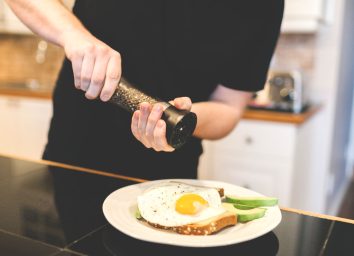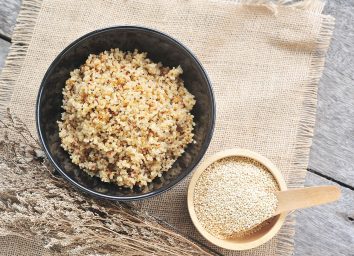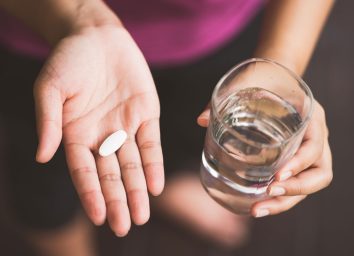15 Warning Signs Your Diet Is Going To Make You Sick
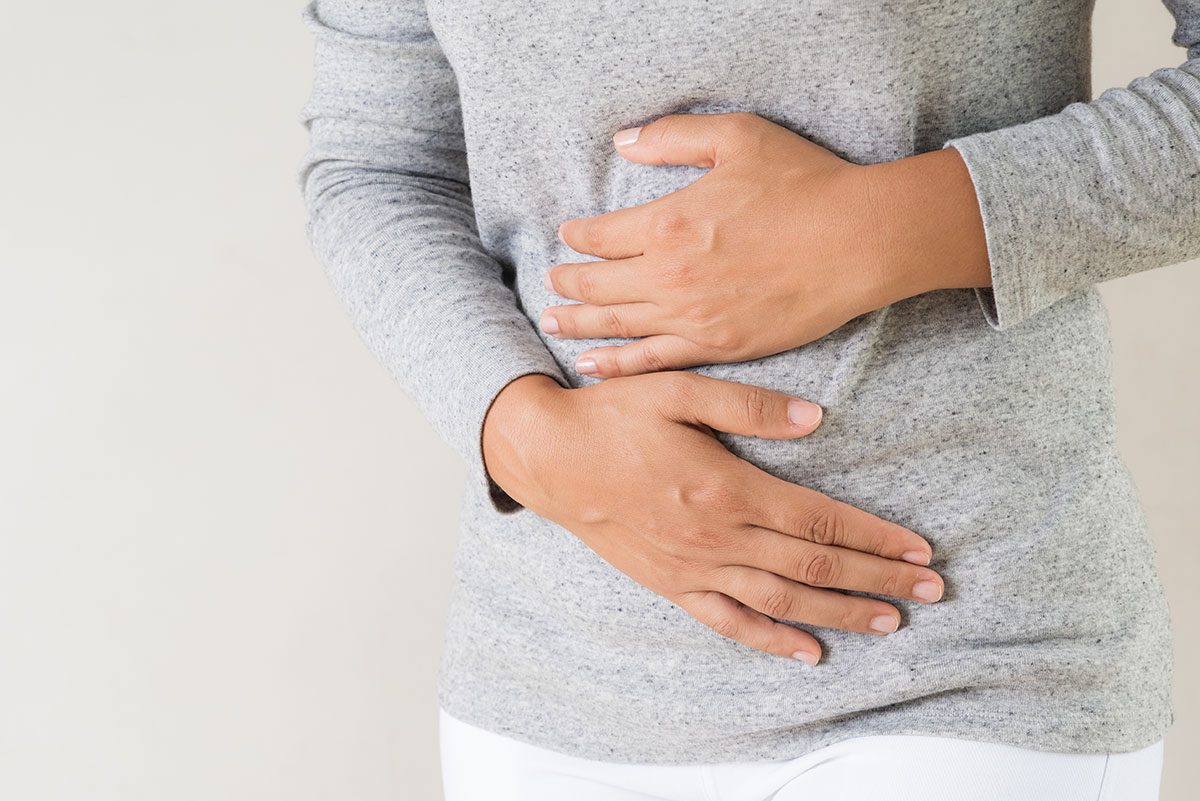
Whether you have a special occasion around the corner or are just trying to jumpstart your weight loss for the New Year, there are a million diets out there that promise to help you get trim like a supermodel. From nixing entire food group to just eating one type of food, there are lots of crazy (read: totally unhealthy) weight loss plans out there. The scariest part? People are following them!
When you're trying to decide if a new diet is for you, it's important to look for signs that it could wind up making you ill. And if you've recently started a diet, it's important to keep a pulse on your health to make sure you're not setting yourself up to get sick. Thankfully, if you know the signs of a less-than-healthy plan, you can save yourself a lot of health woes down the road. Not sure what to look out for? We've got your back.
Read on to discover the red flags that may signal a diet is no good for your health. And if you come to find that your plan may not be the healthiest—don't sweat it. Just jump off the bandwagon ASAP and read up on these 26 Most Overlooked Ways to Lose Weight for ideas on how to trim down the healthy way!
It doesn't have enough calories
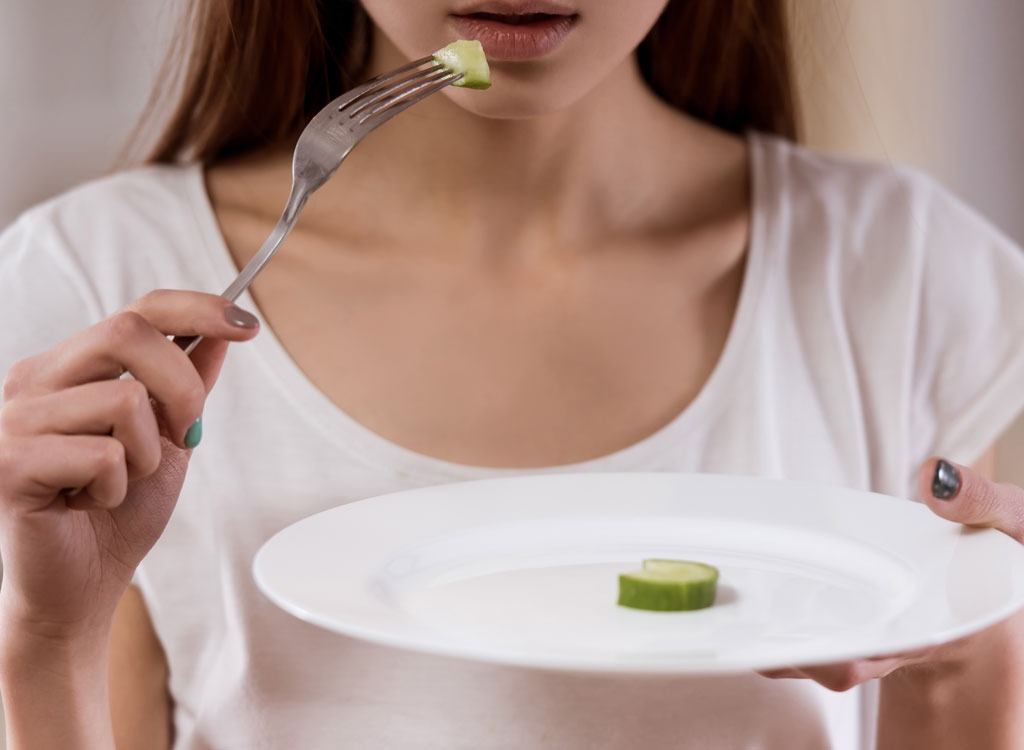
Take a good hard look at that new diet you're considering. Does it seem like it provides enough energy to keep you functioning? While caloric needs vary based on how active you are, your age, and your gender, the average daily needs for an adult range from 1,600 to 2,400 calories for women and 2,000 to 3,000 for men. If the diet you've been mulling over has you taking in less than the recommended daily intake, chances are good that it will make you sick. Not sure how to trim down without seriously dialing back on calories? Our report, 30 Weight Loss Tips Better Than Counting Calories can help!
It's boring
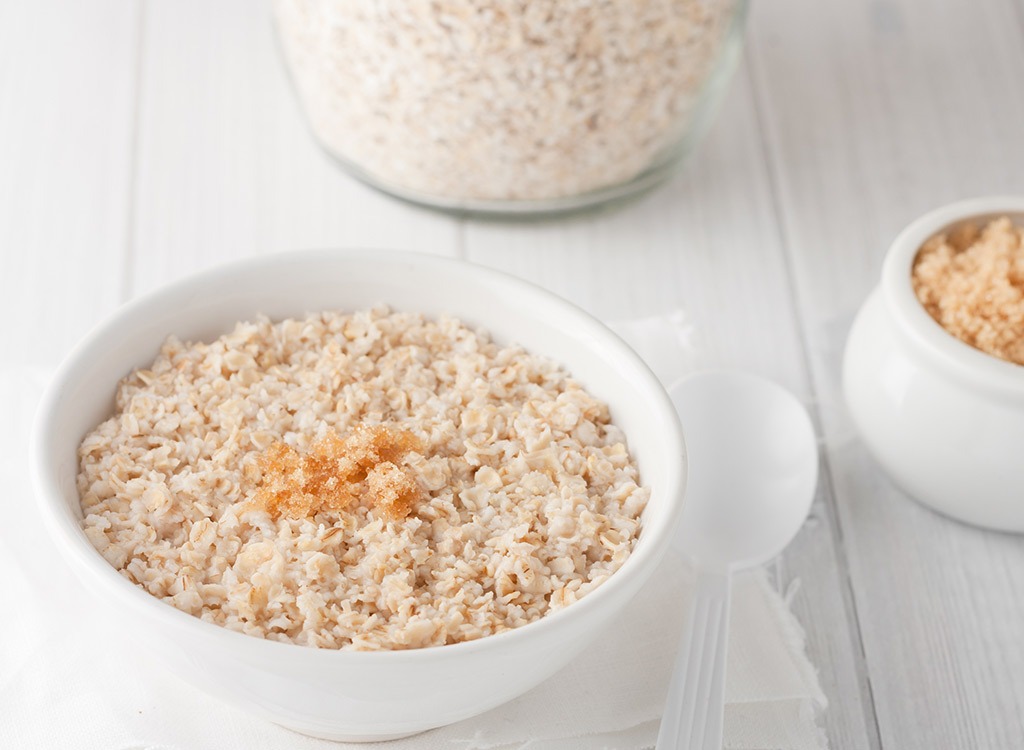
Diets shouldn't be like your shampoo routine–wash, rinse, and repeat. If your plan requires that you eat the same thing every single day, it probably won't be too effective. Or worse, it could make you sick. Eating a variety of wholesome foods (like these 100 Healthiest Foods on the Planet) ensures you get enough vitamins and minerals in your daily diet. If you nibble the same few things on a regular basis, you likely won't get enough nutrients to maintain good health.
It doesn't come from a trusted source
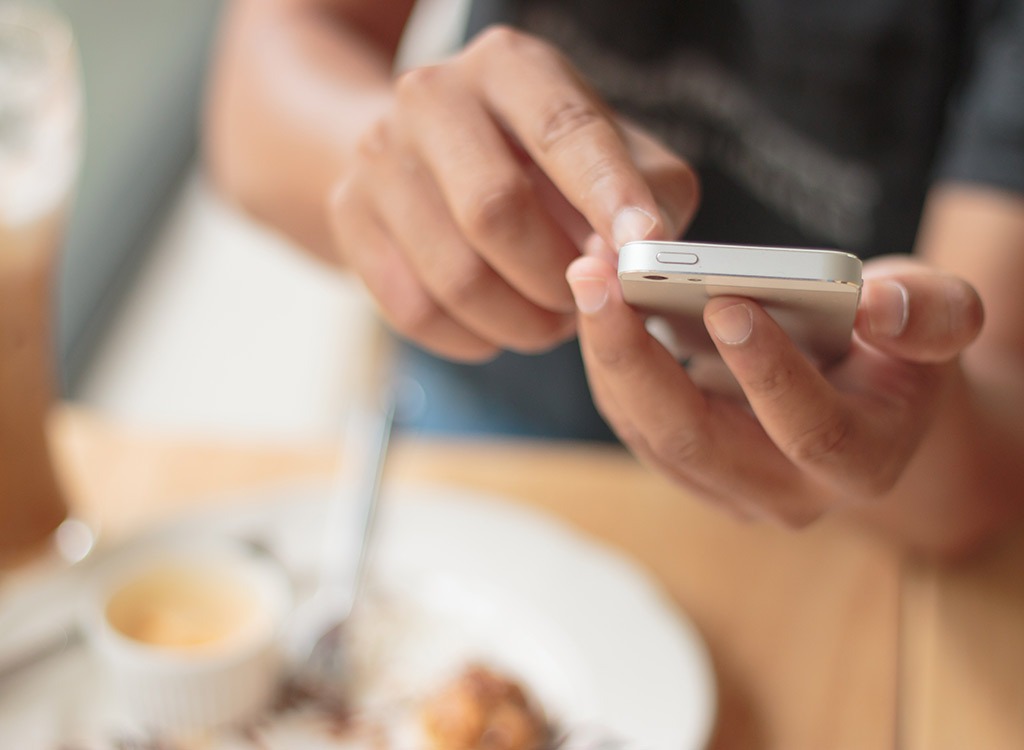
If you found a weight loss on a random blog or Instagram account, chances are the information isn't coming from a solid nutritional source. Before embarking on a new diet, check to see if it includes medical research or if it was put together with the help of health professionals. If it wasn't, chances are it's more likely to make you sick than thinner.
STAY INFORMED: Sign up for our newsletter to get the latest food news delivered straight to your inbox.
It lacks fiber
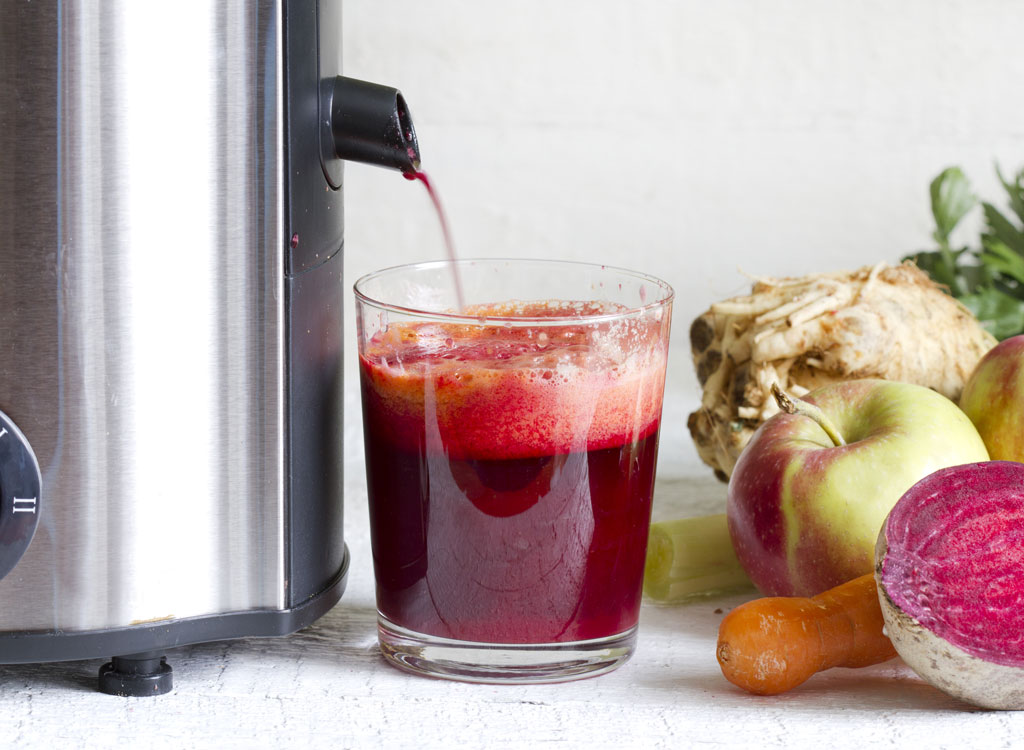
The average American consumes about 15 grams of fiber daily, which is 10 grams under the recommended amount, according to The University of California, San Francisco Medical Center. If you're considering going on a diet that doesn't incorporate high fiber foods like whole grains, beans, fruits, and veggies, you likely won't consume enough of the belly-filling nutrient on the regular. Not only might this leave your stomach rumbling, it could make you constipated, too. Your body needs fiber—from real foods, not supplements—to add bulk to your stool and make them easier to pass.
It calls for dietary supplements

A lot of today's diets have a laundry list of dietary supplements you just "have" to take if you really want to be on board with their program. The names of these supplements are usually longer than the body of research on their effectiveness, which means you could be spending money on something that doesn't do much to improve your health—and could even be harmful. Since the supplement market is so under-regulated, your daily multivitamin may also be laced with fillers, flavorings, and binders that are less-than-ideal for your health, according to The Office of Dietary Supplements. To ensure you're getting all of the nutrients you need—without popping a pill—eat a varied diet and nab some tips from our report How to Supplement Your Diet Without Pills, to ensure you're filling in any nutritional shortcomings.
It's way different than your current diet
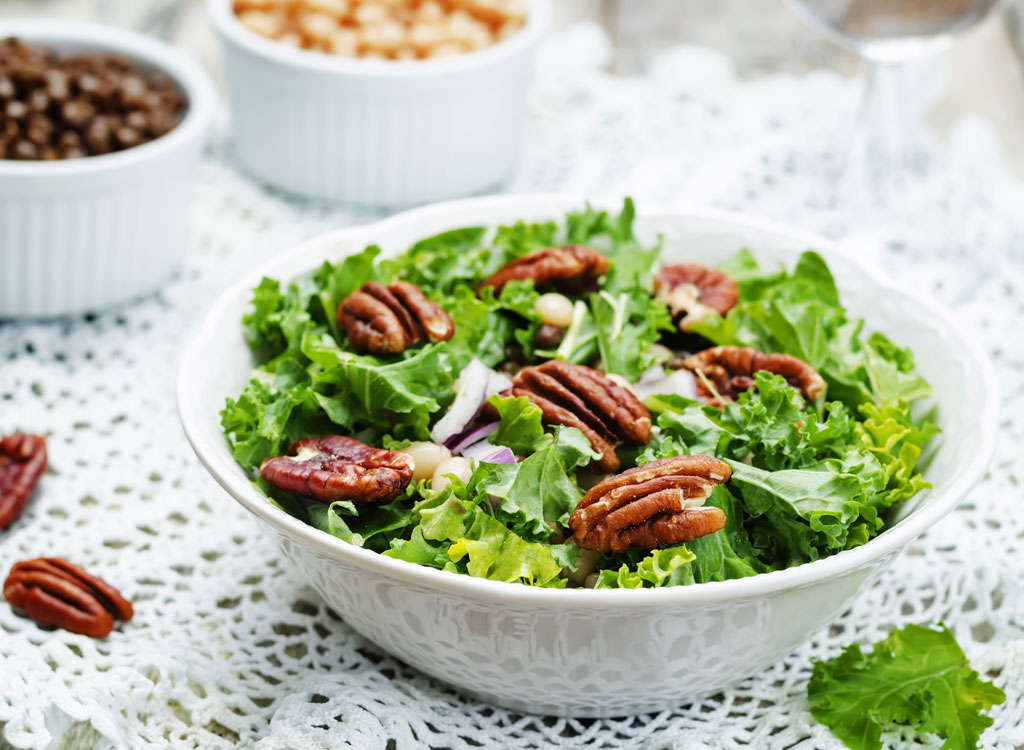
Okay, if you're currently subsisting on a diet of donuts and pizzas, then doing a 180 may not be a bad idea. But if you have dietary preferences like enjoying meat, then that probably means the best for you isn't going to be vegan. And if your diet is relatively healthy and you are looking at embarking on an eating plan that requires you to prepare your meals totally differently or swap out a lot of foods in your diet, it may bring on constipation, bloating, and other unwanted side effects. "If you want to change things up a bit, the safest bet would be to do so slowly so your system doesn't get a total shock," says David Zinczenko, author of the Zero Belly Diet, the revolutionary plan that can help you turn your fat genes off with the right metabolism-revving foods.
It ignores your health conditions
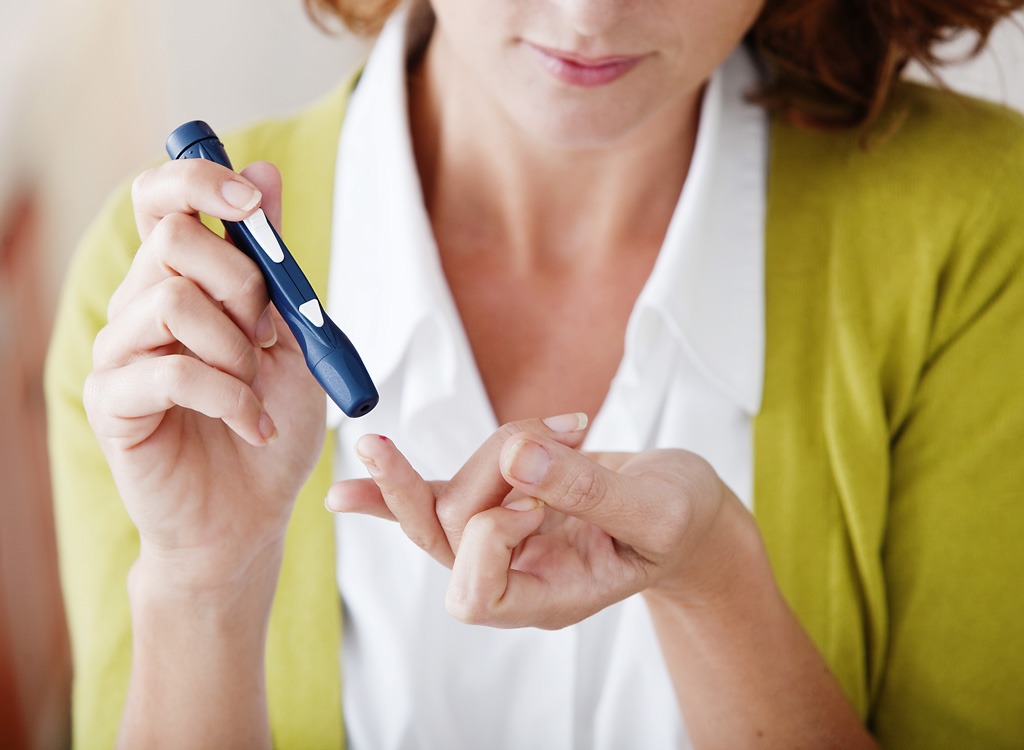
If you have a condition like diabetes, irritable bowel syndrome, or celiac disease, you likely have to modify your diet. Since most generic weight loss plans are tailored for the general population, you'll likely have a hard time finding one that is safe for you to follow. If you want to lose weight—without putting your health in danger—stay away from conventional diets and seek guidance from an M.D. or a nutritionist.
It promises to cure your health conditions

On the flip side, any diet that promises to heal all your chronic woes should be approached with caution. While it's true that food is a great healer, it shouldn't be a replacement strategy for all that you're already doing to maintain your health.
It advocates for excessive exercise

While a smart diet plan will encourage people to incorporate exercise into their regimen, a diet that suggests you hit the gym for hours on end will likely have a negative effect on your immune system, according to an article in the journal Sports Medicine. A compromised immune system can put you at risk for upper respiratory tract infections and other scary complications.
It's 100% cheese

Anyone who's seen "The Devil Wears Prada" knows that Emily went to extremes to lose weight for fashion week. To slim down to a runway "sample size," she fasted all day long and when she felt like she was about to pass out, she'd eat a cube of cheese. Yes, seriously. You don't need to be an M.D. to know that this probably isn't a smart idea. If you're considering a cheese diet, the grapefruit diet, or just eating cotton balls like on "Scream Queens", it's time to stop. There's a reason those types of diets are only portrayed in the movies; they aren't meant for real life. Plus, they aren't varied enough to ward off nutrient deficiencies. To find out what vitamins your plan may be lacking, don't miss our report, 17 Nutrients You Weight Loss Plan Is Missing. Even if you're diet is really smart, you should still be coming up short on certain vitamins and minerals.
It forces you to become obsessed with your diet

Not only can not-so-wholesome diets make you physically sick, they can affect your mental health, too. Sometimes when a diet is super restrictive or time-consuming, you start to focus solely on what you're eating and what your next meal or snack is. Over time, this can cause you to become anxious or fearful about eating anything that's remotely outside of your diet. According to the Academy of Nutrition and Dietetics, these feelings may be a sign of orthorexia nervosa, which is an unhealthy obsession with eating healthy food. If this sounds like you, seek medical help immediately.
It makes you feel like you need to isolate yourself

Eating should be fun, relaxing and social! So if you find yourself avoiding dining out with your friends because they might comment on what you're eating, or you're worried the kitchen may not be able to cater to your needs, consider that a red flag that your diet is no good.
It makes it so that you don't enjoy food anymore
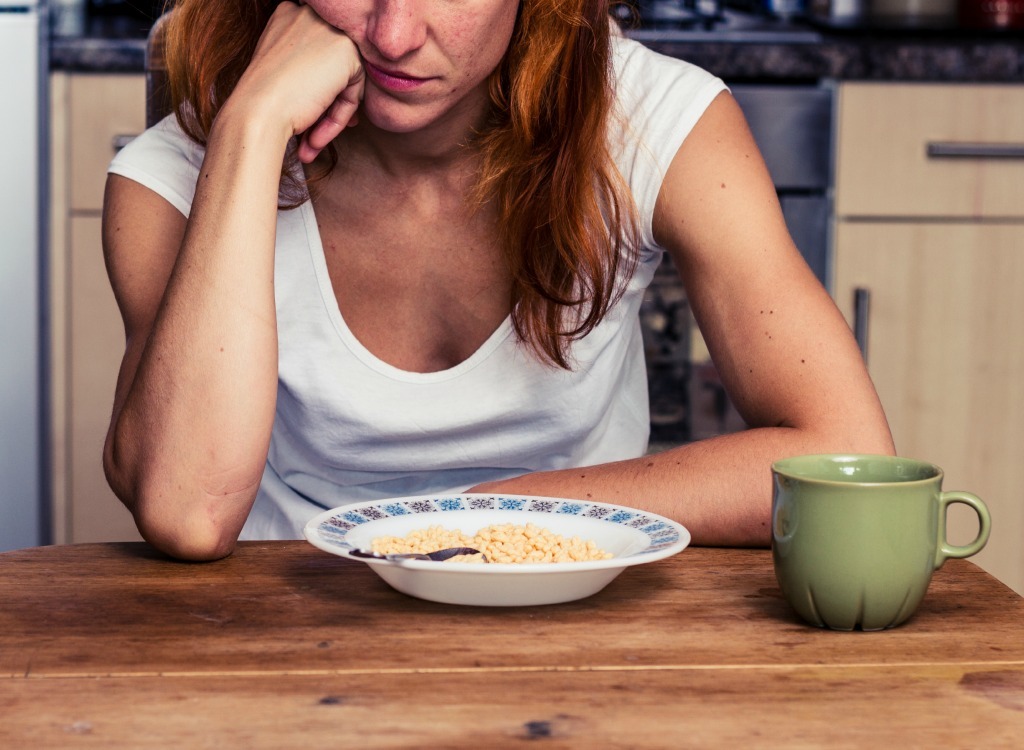
Whether you're eating a gooey cookie or a delicious kale salad, eating should be enjoyable! When a diet seems to suck all the joy out of eating, that's a clear sign it's a dud—and one that can have serious implications on your mental health. Restrictive dieting has been shown to cause anxiety, anger, and mood changes, according to the College of the Canyons.
It makes you totally exhausted

A healthy diet should give you more energy—not leave you feeling like you can't get out of bed. If you start feeling increasingly fatigued as the days of your diet wear on, chances are you're becoming malnourished, according to The Nemours Foundation. It's important you listen to your body when you start having these symptoms. Fatigue can be a sign that your immune system has been compromised. As a result, you may become sick more frequently and for longer time periods of time. Your body needs nutrients—and lots of different ones—to have a well-functioning immune system. If you don't feed it, you won't feel well. And speaking of things that can leave you feeling under the weather, be sure to avoid all of these 40 Habits That Make You Sick and Fat.
It makes it hard to think clearly
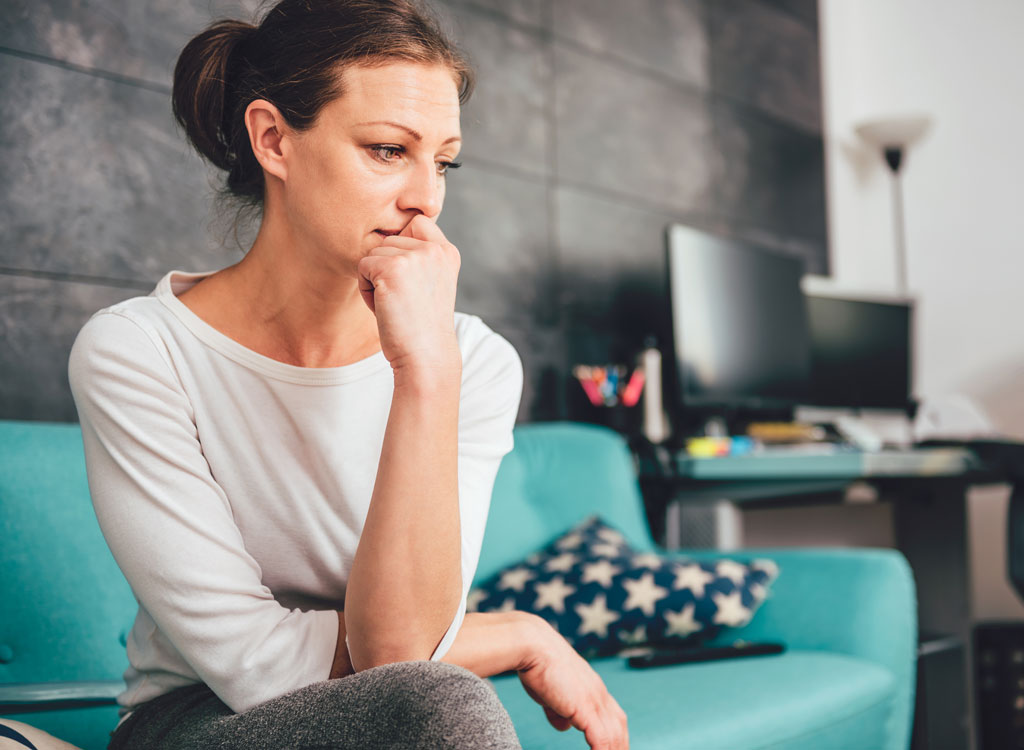
If you've even been stuck in a food-free meeting come lunchtime you might notice that it becomes increasing difficult to focus. Well, super calorie-restricted diets can have the same effect—to a much bigger degree, according to The Nemours Foundation. If you've found it increasingly difficult to focus since starting your new diet, you can be certain something isn't right.
